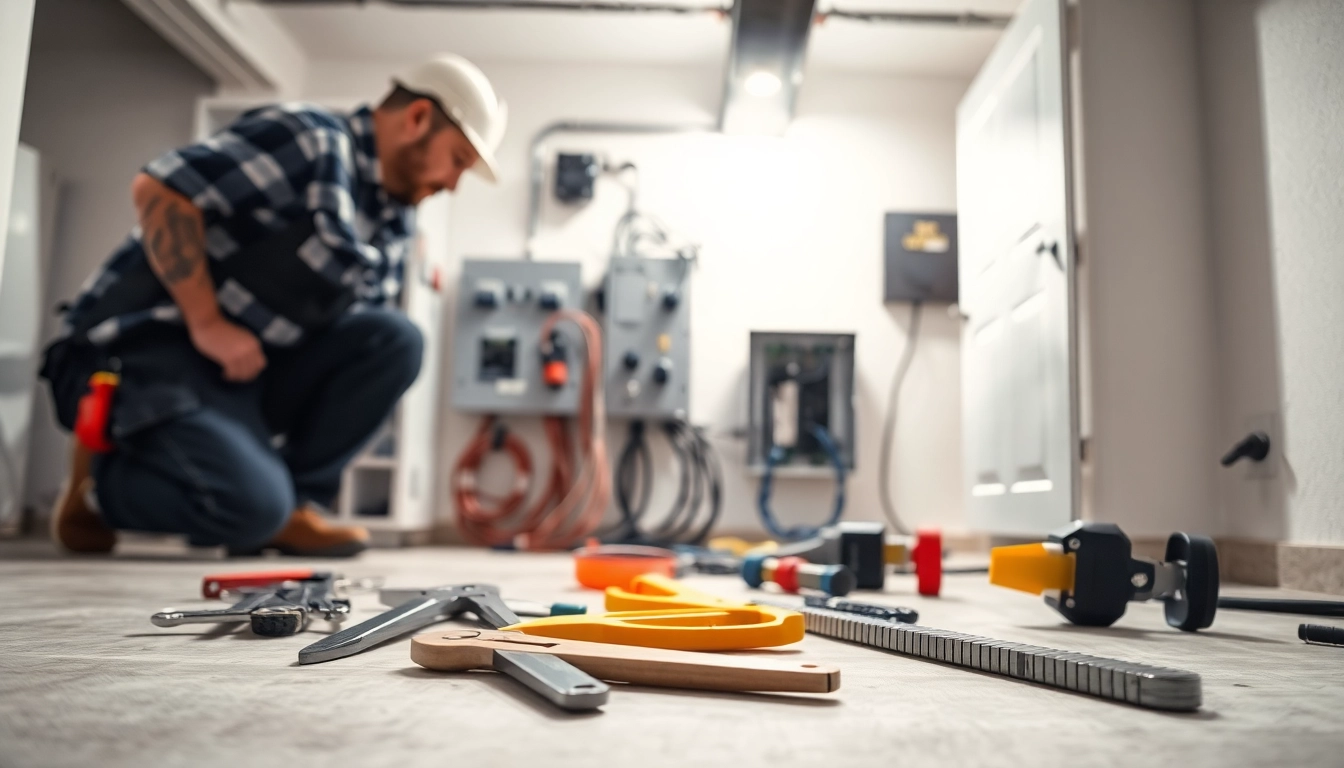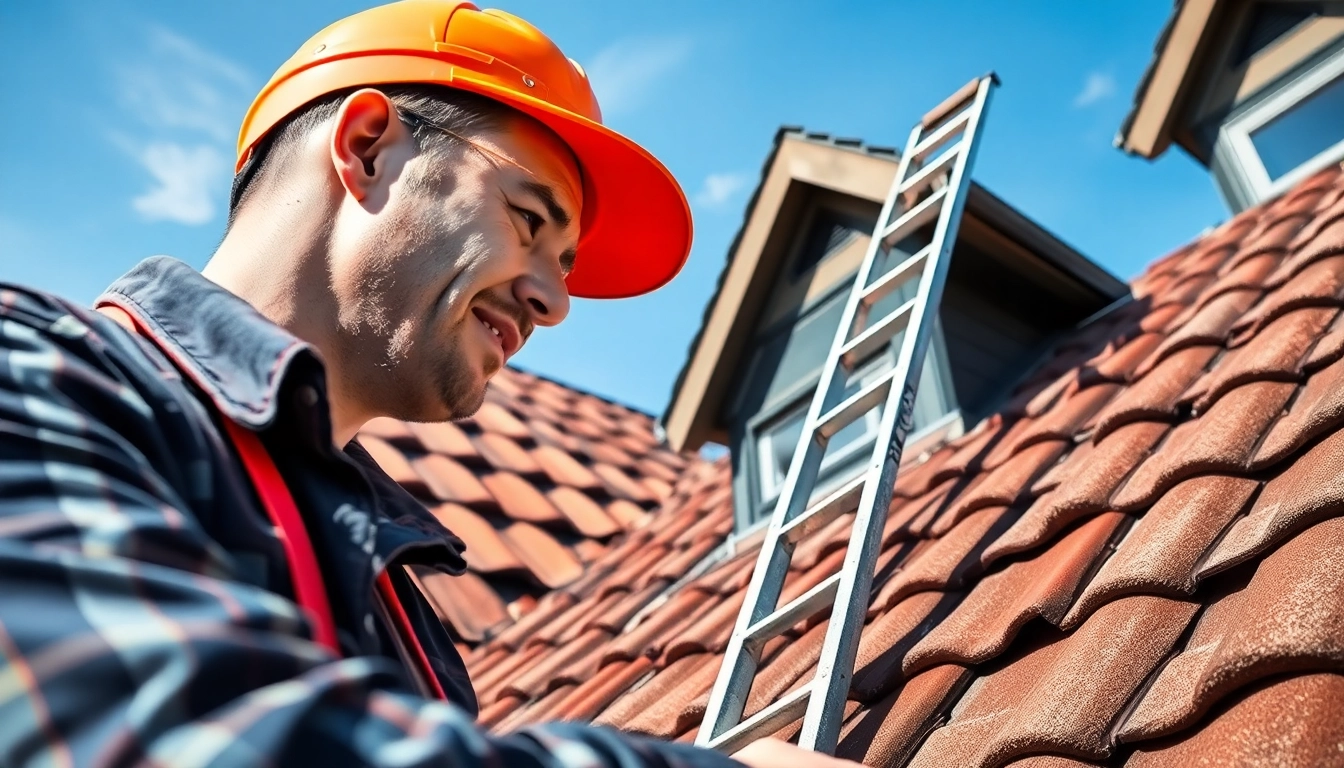Understanding Electrical Panel Upgrade Needs
The electrical panel is the heart of your home’s electrical system, providing the distribution point for electrical circuits. Whether you’re considering a renovation, installing a new appliance, or planning future upgrades, recognizing when to pursue an Electrical Panel Upgrade is crucial. This comprehensive guide will explore the signs that signal your panel may need an upgrade, the benefits of upgrading, and the different types of electrical panels available.
Signs Your Electrical Panel Needs an Upgrade
Many homeowners may not pay much attention to their electrical panel until it shows signs of trouble. Here are key indicators that upgrading your electrical panel might be necessary:
- Your Panel is Overloaded: If you frequently experience tripped breakers or blown fuses, this is a clear sign your panel can’t accommodate your home’s electrical demands.
- Flickering Lights: Dimming or flickering lights, especially when you turn on other appliances, can indicate a faulty or inadequate panel.
- Limited Circuit Breaker Space: If your panel is jam-packed with circuit breakers and you often find yourself needing more capacity, it’s time to consider an upgrade.
- Frequent Electrical Problems: Common issues like buzzing noises, warm or hot panels, or a burning smell can be red flags for serious electrical problems and necessitate an upgrade.
- Old Age: Electrical panels older than 20 years likely don’t meet current safety standards and can pose risks to your household.
Benefits of Upgrading Your Electrical Panel
Investing in an electrical panel upgrade can offer numerous advantages for your home:
- Increased Electrical Capacity: Upgrading to a higher amperage panel can significantly increase the amount of electrical power distributed throughout your home, which is vital for modern appliances and electronics.
- Improved Safety: Newer panels come with robust safety features and comply with contemporary electrical codes, reducing the risk of electrical fires.
- Enhanced Home Value: A modern electrical system can enhance the value of your home, making it appealing to prospective buyers.
- Future-Proofing: Upgrades can prepare your electrical system for potential future needs, such as electric vehicles or smart home technology.
Types of Electrical Panels Available
When considering an upgrade, it’s essential to know the different types of electrical panels that are available:
- breaker Panels: The most common choice for residential properties, offering multiple circuit connections.
- Subpanels: Useful for larger homes or those with multiple electric loads, subpanels enable you to distribute power more effectively.
- Smart Panels: These panels come equipped with smart technology, allowing homeowners to monitor energy usage via smartphone applications.
- 200 Amp Panels: Ideal for homes with substantial electrical needs, accommodating the demands of modern living.
Cost Considerations for an Electrical Panel Upgrade
Average Costs and Pricing Factors
The cost of upgrading an electrical panel can vary widely based on several factors:
- Type of Panel: The cost for the actual panel can range from $100 to $500 depending on the type and features.
- Labor Costs: Electricians typically charge between $50 and $120 per hour, with total labor expenses contributing significantly to the overall cost.
- Location: Geographic location can influence labor rates and material costs.
- Permits: Depending on local regulations, you may need to obtain permits, which can add to the overall expenses.
On average, homeowners can expect to spend between $800 and $4,000 for a panel upgrade.
Financing Options for Panel Upgrades
For many, the upfront costs of an electrical panel upgrade can feel overwhelming. However, several financing options can help alleviate the financial burden:
- Home Equity Loans: Utilizing equity in your home can provide the funds needed for the upgrade.
- Personal Loans: Many financial institutions offer personal loans that may have lower interest rates compared to credit cards.
- Credit Cards: Though less advisable for large expenses, credit cards can be an option if you can manage to pay the balance quickly.
- Utility Company Incentives: Some local utility companies offer rebates or assistance programs to homeowners upgrading their panels to more energy-efficient systems.
Potential Return on Investment
An electrical panel upgrade typically represents a substantial investment, but it can yield significant returns:
- Increased Home Value: Upgrading your panel can increase the desirability of your home, particularly for buyers looking for modern electrical setups.
- Energy Efficiency: Newer panels improve energy efficiency, potentially lowering your utility bills.
- Insurance Benefits: Upgrading can lead to lower homeowners’ insurance premiums as many insurers look favorably on modern safety standards.
Permitting and Safety for Electrical Panel Upgrades
Understanding Permits Required for Upgrades
Before undertaking an electrical panel upgrade, it’s critical to understand the permits that may be required. Most local building codes mandate permits for electrical work. Failing to acquire the appropriate permits can lead to fines and complications during inspections. Here’s a general process to follow:
- Consult with local building authorities to determine necessary permits.
- Hire a licensed electrician who understands local codes and can help navigate the permitting process.
- Ensure all work passes inspections post-upgrade.
Importance of Professional Installation
While it may be tempting to undertake DIY electrical work, hiring a licensed professional is crucial for several reasons:
- Expertise: Electricians have the training and experience required to safely and effectively manage panel upgrades.
- Compliance: Professionals ensure that the installation meets all local codes and regulations, helping avoid any future issues.
- Warranty Protection: Work performed by licensed professionals is often covered by warranties, providing peace of mind.
Common Safety Standards and Codes
Upgrading an electrical panel means adhering to current safety standards and codes. Familiarize yourself with the National Electrical Code (NEC), which outlines the standards for electrical installations in the United States. Ensuring compliance with these standards can minimize risks associated with electrical fires or malfunctions, providing added safety to your household.
Steps to Successfully Upgrade Your Electrical Panel
Planning Your Upgrade Project
The planning stage is crucial to a successful electrical panel upgrade. Here are steps to consider:
- Assess Your Electrical Needs: Calculate the total amperage required for your home considering current and future needs.
- Research Options: Explore panel types and sizes to determine what best fits your home’s requirements.
- Budget: Set a budget taking into account all costs associated with the upgrade.
Choosing the Right Electrician
Selecting a qualified electrician can significantly impact the outcome of your upgrade:
- Credentials: Verify that the electrician is licensed and insured in your state.
- Experience: Look for an electrician who specializes in panel upgrades and has positive reviews or references.
- Estimates: Request estimates from multiple electricians to ensure a fair price.
Post-Upgrade Checks and Maintenance
After the upgrade is complete, taking steps to ensure the system operates optimally is vital:
- Inspect the Installation: Ensure all work has been performed correctly and that the panel is functioning efficiently.
- Regular Maintenance: Schedule periodic checks to monitor the electrical system’s performance and ensure all components remain compliant with safety standards.
Future-Proofing Your Electrical System
Expanding Your Electrical Capacity
As homes become more reliant on electricity, ensuring your electrical system can handle increased loads is essential. Upgrading to a higher amperage panel (like a 200-amp service) is an effective way to provide extra capacity for higher demand, such as electric vehicles and smart home devices.
Upgrading for Smart Home Technologies
With the rise of smart home technology, having an electrical panel that can handle the demands of such devices is increasingly important. An upgraded panel can improve efficiency, reduce energy consumption, and provide a more stable power supply to your smart home components, ensuring they operate accurately and safely.
Long-Term Benefits of Electrical Panel Upgrades
Beyond immediate needs, an upgraded electrical panel can provide long-term benefits, including:
- Increased Longevity: Modern panels and circuit breakers are built to last, reducing the frequency of repairs or replacements.
- Enhanced Energy Management: With newer technology, you may find energy-saving options that can significantly reduce your utility bills.
- Increased Home Safety: A properly functioning panel plays a crucial role in overall electrical safety in your home.



